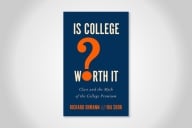You have /5 articles left.
Sign up for a free account or log in.
The Minnesota Supreme Court on Wednesday upheld the right of the University of Minnesota to punish a mortuary science student for posts on Facebook that made fun of a cadaver.
The court's ruling said that because of the nature of the student's career-related academic program, the university did not violate the student's rights in failing her in an anatomy laboratory course.
In a technical sense, the Minnesota Supreme Court affirmed the finding of a state appeals court that also found no First Amendment violations by the university. But the appeals court's ruling was broad, suggesting that the university could punish off-campus speech that "materially and substantially disrupted the work and discipline of the university." Advocates for student speech rights said that the breadth of the appeals court's ruling created the ability for public universities to punish all kinds of off-campus student activity.
Wednesday's ruling by the Minnesota Supreme Court explicitly rejected the breadth of the appeals court's decision. And it limited its findings to students in professional programs with standards of conduct. It seems likely, in other words, that a physics student who mocked a cadaver on Facebook could not be punished by his university, at least under this decision.
While the decision applies only in Minnesota, it deals with an issue relevant not just to mortuary science, but to a range of health professions programs that expect students to adhere to certain standards of professionalism, even before they become professionals. Johnson County Community College faced a controversy last year over nursing students who were kicked out of their program over photographs they posted of students with a human placenta. (The students sued.)I'm trying to get status of case. -sj
In the Minnesota case, Amanda Tatro was a junior in the mortuary science program. The program's rules specifically require students to be "respectful and discreet" in dealing with cadavers, and not to blog about their cadavers. The university said that Tatro violated these rules with four Facebook status updates in which she talked about her cadaver, whom she named "Bernie." The posts (unedited) are:
- Amanda Beth Tatro Gets to play, I mean dissect, Bernie today. Let’s see if I can have a lab void of reprimanding and having my scalpel taken away. Perhaps if I just hide it in my sleeve...
- Amanda Beth Tatro Is looking forward to Monday’s embalming therapy as well as a rumored opportunity to aspirate. Give me room, lots of aggression to be taken out with a trocar.
- Amanda Beth Tatro Who knew embalming lab was so cathartic! I still want to stab a certain someone in the throat with a trocar though. Hmm..perhaps I will spend the evening updating my “Death List #5” and making friends with the crematory guy. I do know the code...
- Amanda Beth Tatro Realized with great sadness that my best friend, Bernie, will no longer be with me as of Friday next week. I wish to accompany him to the retort. Now where will I go or who will I hang with when I need to gather my sanity? Bye, bye Bernie. Lock of hair in my pocket.
The mortuary science program at Minnesota and other programs at the university rely on people to agree to donate their bodies when they die. The program has said that in requiring respectful treatment of cadavers, the university is teaching students the standards of the field they plan to enter.
Tatro characterized her Facebook posts as "satirical commentary" that should be protected by the First Amendment.
In examining restrictions on speech by a public university, the Minnesota Supreme Court kept it simple, rejecting the various precedents cited by the lower court. By focusing on professional standards of professions and professional schools, the court ruled, there is little danger that a university could punish students for Facebook posts that were simply offensive to an administrator or a powerful official.
"[A] university may regulate student speech on Facebook that violates established professional conduct standards. This is the legal standard we adopt here, with the qualification that any restrictions on a student’s Facebook posts must be narrowly tailored and directly related to established professional conduct standards," the court ruled.
"Tying the legal rule to established professional conduct standards limits a university’s restrictions on Facebook use to students in professional programs and other disciplines where student conduct is governed by established professional conduct standards. And by requiring that the restrictions be narrowly tailored and directly related to established professional conduct standards, we limit the potential for a university to create overbroad restrictions that would impermissibly reach into a university student’s personal life outside of and unrelated to the program. Accordingly, we hold that a university does not violate the free speech rights of a student enrolled in a professional program when the university imposes sanctions for Facebook posts that violate academic program rules that are narrowly tailored and directly related to established professional conduct standards," the court added.
Minnesota's position had strong support from groups of colleges. The American Council on Education, the American Association of Medical Colleges and three other organizations filed a brief that argued Minnesota had the right to punish Tatro. "This is a case about the academic freedom of a university to set and enforce reasonable course standards and reasonable campus rules. The course standards at issue were designed to teach ethics and professional norms to students enrolled in a professional program."
The Foundation for Individual Rights in Education and the Student Press Law Center, however, had urged the Minnesota Supreme Court to reverse the appeals court decision. While the court didn't do so, both groups said that the narrow approach taken by the high court is much better than the lower court's approach to the issue.
A statement from FIRE said: "Despite the disappointing affirmation of the lower court's ruling, the Minnesota Supreme Court's opinion is in some respects a significant improvement from the Court of Appeals' earlier decision. The Supreme Court's opinion explicitly cabins a public university's authority to police online, off-campus student speech in a way that the earlier decision did not."








